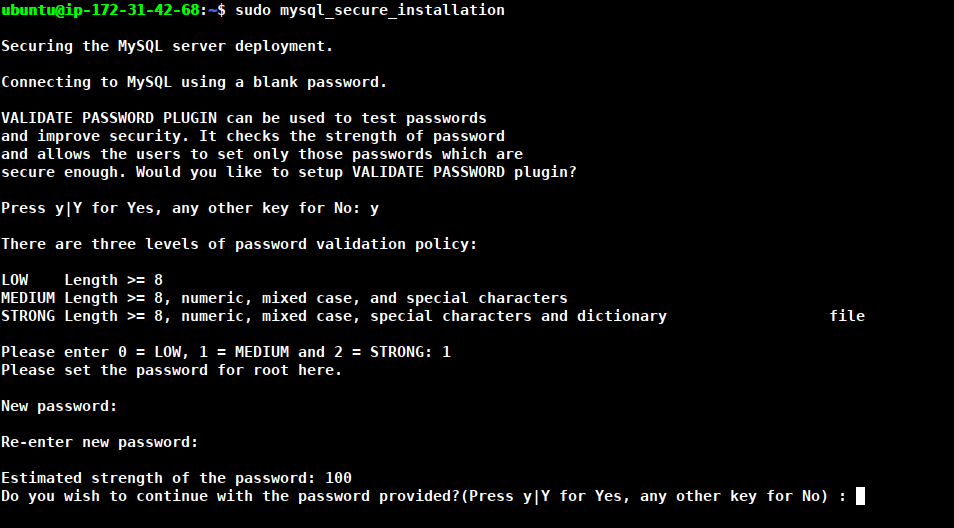
Replace dbname with the name of the database you created in step 7: To work with the new database, type the following command. Replace dbname with the name of the database that you want to create: To create a database, type the following command. Type the user's password, and then press Enter.Replace username with the name of the user you created in step 3: To log in to MySQL as the user you just created, type the following command.

For example, to explicitly grant only the SELECT permission for the specified user, you would use the following command: GRANT SELECT ON *.* TO grant the user all permissions only on the database named dbname, you would use the following command: GRANT ALL PRIVILEGES ON dbname.* TO more information about setting MySQL database permissions, please visit. However, you can grant specific permissions to maintain precise control over database access. service is replacing all the init.d scripts over time, so you should get into the habit of using service.The previous command grants the user all permissions on all databases. You cannot give it multiple arguments as you were trying to do.Īnyway, the short answer is the one you actually got to work, is the recommended way. an init.d script only takes start or stop or restart - just one word telling it what to do. Are you sure you entered your password correctly? :) Have you edited your sudo config at all which would stop this working?

I used restart rather than start, since it was already running, but the effect is the same. Indeed it does, for me: kojan:~> sudo /etc/init.d/mysql restartĬhecking for corrupt, not cleanly closed and upgrade needing tables.

Your first two commands weren't run as root so that is expected behaviour.


 0 kommentar(er)
0 kommentar(er)
